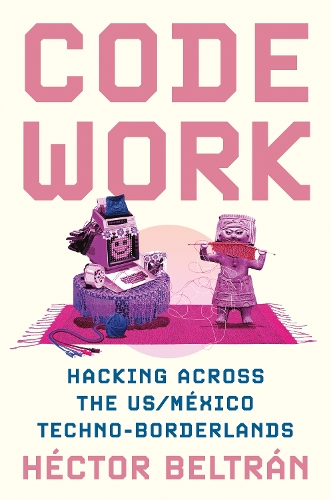
Code Work: Hacking across the US/Mxico Techno-Borderlands
(Hardback)
Available Formats
Publishing Details
Code Work: Hacking across the US/Mxico Techno-Borderlands
By (Author) Hctor Beltrn
Princeton University Press
Princeton University Press
21st February 2024
United States
Classifications
General
Non Fiction
Social and cultural anthropology
Social discrimination and social justice
Computing and Information Technology
364.16809721
Physical Properties
Hardback
240
Width 156mm, Height 235mm
Description
How Mexican and Latinx hackers apply concepts from coding to their lived experiences
In Code Work, Hctor Beltrn examines Mexican and Latinx coders personal strategies of self-making as they navigate a transnational economy of tech work. Beltrn shows how these hackers apply concepts from the code worlds to their lived experiences, deploying batches, loose coupling, iterative processing (looping), hacking, prototyping, and full-stack development in their daily social interactionsat home, in the workplace, on the dating scene, and in their understanding of the economy, culture, and geopolitics. Merging ethnographic analysis with systems thinking, he draws on his eight years of research in Mxico and the United Statesduring which he participated in and observed hackathons, hacker schools, and tech entrepreneurship conferencesto unpack the conundrums faced by workers in a tech economy that stretches from villages in rural Mxico to Silicon Valley.
Beltrn chronicles the tension between the transformative promise of hackingthe idea that coding will reconfigure the boundaries of race, ethnicity, class, and genderand the reality of a neoliberal capitalist economy divided and structured by the US/Mxico border. Young hackers, many of whom approach coding in a spirit of playfulness and exploration, are encouraged to appropriate the discourses of flexibility and self-management even as they remain outside formal employment. Beltrn explores the ways that innovative culture is seen as central in curing Mxicos social ills, showing that when innovation is linked to technological development, other kinds of development are neglected. Beltrns highly original, wide-ranging analysis uniquely connects technology studies, the anthropology of capitalism, and Latinx and Latin American studies.
Author Bio
Hctor Beltrn is assistant professor of anthropology at the Massachusetts Institute of Technology.
